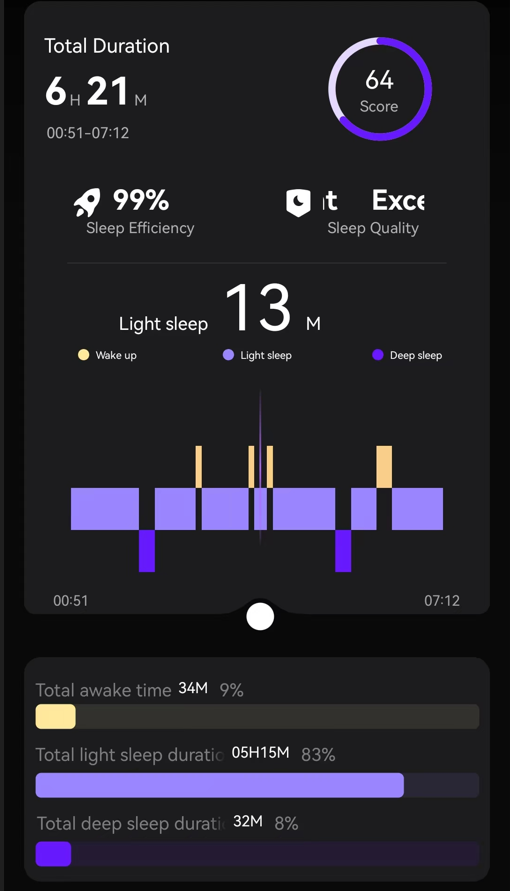According to research, sleep deprivation can cause a host of problems.1 Factors such as rising stress levels, modern technology, and "revenge bedtime procrastination" (or sacrificing sleep for free time at the end of the day) are all contributing factors. Giving up an hour or so of sleep to browse TikTok or binge-watch your favorite show may feel harmless. But getting a good night's sleep is one of the best things you can do for your health. That's because during sleep, your body recovers, resets and repairs itself to get ready for a new day.
While you may think of sleep as your body "powering down," it's actually the opposite.1 Chronic poor quality and quantity of sleep can lead to mood swings, memory loss, cognitive decline, and an increased risk of diseases such as type 2 diabetes, high blood pressure, heart disease, and depression.
While quantity of sleep is important, it is not the only factor. Both the quantity and quality of sleep you get each night are important factors in your health. So what's the difference between the two and how do you know if you're getting good quality sleep?
What getting a good night's sleep really means
Amount of sleep refers to the number of hours of sleep each night.4 According to experts, adults need about seven to nine hours of sleep.5 Although research suggests that women need more sleep because they are more susceptible to insomnia, anxiety, depression, and other disorders that affect their sleep.6 The length of sleep is easy to measure, and therefore is the default indicator of sleep health. However, the number of hours spent in bed means little if the quality of sleep is poor. In other words, quantity of sleep measures how much you sleep, while quality of sleep measures how well you sleep.7
How to measure sleep quality
As you can imagine, the measurement of sleep quality is much more complicated because it is more subjective than sleep quantity. But like all subjective measurements, it's not perfect and varies from person to person.
While there is no clear definition, commonly agreed upon "measures" of sleep quality include the following characteristics:4 7
Delayed sleep onset: Falls asleep within 30 minutes of getting into bed.
Sleep Persistence: Usually sleeps throughout the night without waking. If you wake up in the middle of the night, you fall asleep again within 20 minutes.
Sleep Efficiency: You spend more time sleeping than you do trying to fall asleep.
Amount of Sleep: On average, you sleep the recommended amount of sleep each night.
Sleep Timing: You sleep in accordance with your natural circadian rhythm or internal clock.
Wakefulness: When you wake up, you feel well-rested, refreshed, energized and cognitively alert throughout the day.
SLEEP SATISFACTION: You are satisfied with your sleep each night.
Sleep Stages
Another important factor that affects sleep satisfaction and quality is the amount of time you spend in each sleep stage. After all, sleep is not a uniform experience. You go through four to six sleep stages each night, and each stage plays a vital role in leaving you feeling refreshed and ready to take on the day.

